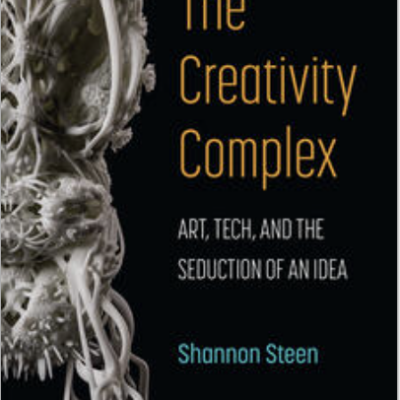Excerpted from the website of University of Michigan Press
Q&A with author Shannon Steen, assistant professor of Theatre, Dance, and Performance Studies at the University of California at Berkeley, USA, where she is also faculty for the program in American Studies.
This guest author post is a Q&A with Shannon Steen, author of The Creativity Complex: Art, Tech, and the Seduction of an Idea , from the University of Michigan Press. The book is available in hardcover, paper, and accessible ebook.
What initially inspired you to explore the concept of creativity and its change in definition across time?
I had two things happen at roughly the same time, both of which I talk about in the book. The first was that my home department (I teach in Theater, Dance, and Performance Studies at UC Berkeley) was undergoing the accreditation review process, and in trying to articulate the core value of our programs to the campus, we talked about training students in what we called “The four Cs” – Communication, Collaboration, Critical Thinking, and Creativity. I was very much one of the people who formulated that language, but even as I was doing so, I found myself thinking “OK, this is great, but is what we mean by creativity in the arts the same as what people in Engineering or the Business School mean? Don’t they define creativity in a problem-solving sense?” It’s not like we’re disinterested in creativity in the arts – far from it – but we’re also, at least in my department, interested in it for different reasons or want it to do different things. Do we really want to reduce the value of art-making to what has become a language of problem-solving? Don’t we need to push for the value of symbolic world-making and ethical exploration, which are very different activities? At the time, I didn’t say anything along those lines because I felt like it was important to use language that had institutional currency or caché, especially at a STEM-heavy university like Berkeley where the arts are seen at best as a kind of niche extra-curricular, and not as a proper area of study (which I think is a pretty common experience for people in arts departments). But I started wondering what we might accidentally be enabling in reinforcing that language.
Article continues here.
